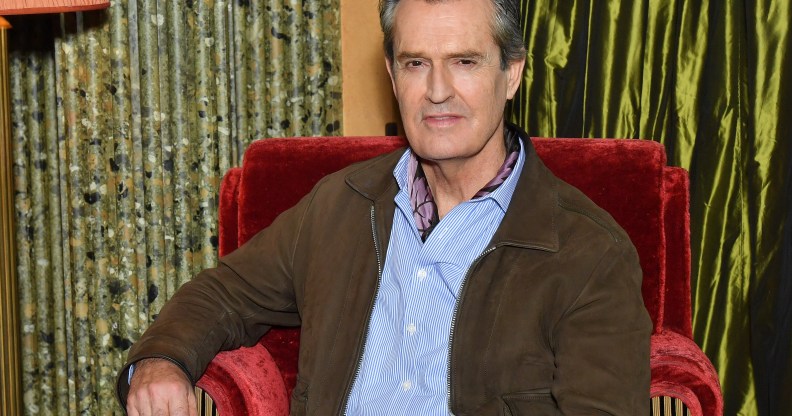Rupert Everett says he lived in ‘terror’ during the AIDS crisis

Rupert Everett. (Stephane Cardinale – Corbis/Corbis via Getty)
Rupert Everett has said the AIDS crisis was a “terrifying time” for him, and said that he feels “lucky” to have not contracted the disease.
Speaking on BBC 4’s Desert Island Discs, the actor told host Lauren Laverne that when he was just 16 he moved to London to study drama, and ended up discovered the gay scene in the city.
He said that during the AIDS crisis in the 1980s he felt that he was “under a lot of strain”, although he added: “I was very lucky not ever contract the HIV virus.
“I am not saying that, of course, the drama for me was anything like the drama for someone who did contract it, but for everyone involved it was a terrifying time.”
The 60-year-old continued: “When you’re losing friends… I think I did go a bit crazy with all that as well.
“I became militant in my own world, I suppose. I was on a short fuse.
“I kept thinking in the first few films I made: ‘My God, what happens if I suddenly find myself with this illness right in front of the camera?'”
In the 1980s, the AIDS crisis hit the UK, killing thousands and disproportionately claiming the lives of young men in the gay community.
It’s estimated that nearly 37 million people are living with HIV globally and more than 35 million people have died from AIDS-related illnesses across the world since the outbreak of the pandemic.
Today, HIV-positive individuals can lead a healthy and full life if they are diagnosed early and receive effective treatment.
Rupert Everett grew up in a “regimented militaristic” family
Everett grew up in a strict military family and said that when he was a part of the London gay scene he felt that he was undoing his upbringing.
Asked by Lavern what he got out of that community at the time, he said: “Sex! Sex and crashing down my whole background out of my life.
“I came from such a regimented militaristic background. Every sh*g, I felt at the time, was knocking that down and destroying it. I felt I had lost myself from my previous life. That’s what I really felt.”

